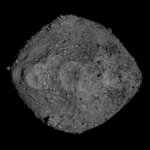September 11, 2015 – Even Tony Stark’s real life alter ego, Elon Musk, gets it wrong from time to time. On this week’s CBS The Late Show, he told host Stephen Colbert that Mars can be fixed up to be a more suitable habitat for our species. During the conversation he proposed a slow or fast solution. The former would involve introducing Earth bacteria to the planet to out-gas oxygen and thicken the atmosphere. The latter is the one that grabbed the headlines, dropping thermonuclear bombs on the Martian poles to turn the water and dry ice from solid to aerosol.
The terraforming of Mars, however, is no trivial task that can be solved using either of these solutions. That’s because any effect would be short lived. Mars has no magnetic field to provide permanent protection for any changes we would create. The only way for humans to permanently alter the Martian environment would involve setting up operating plants capable of generating lots of greenhouse gas emissions continuously forever. Imagine putting 10,000 equivalents to coal-fired power plants here on Earth belching out CO2, aerosols, and other emissions on Mars and you get the idea. You wouldn’t ever want to turn them off because you would continuously need to replace what was lost to space.
A much more difficult technological strategy would be to ignite the inner core of Mars by placing thermonuclear bombs deep inside the planet to generate a Martian magnetic field. This too has been proposed as a terraforming scheme. But like the bombing of the Martian poles, blowing a bomb up inside Mars sounds too fantastic a scheme for even a Tony Stark let alone an Elon Musk.
Musk’s speculation got the scientific community talking. Michael Mann of the Earth System Science Center, Penn State University, told U.S. News, “There are so many things that could go wrong here it is difficult to know where to start.” He went on describing one scenario, a nuclear winter “wherein you generate so much dust and particles that they literally block out a significant portion of the incoming sunlight, cooling down the planet.”








